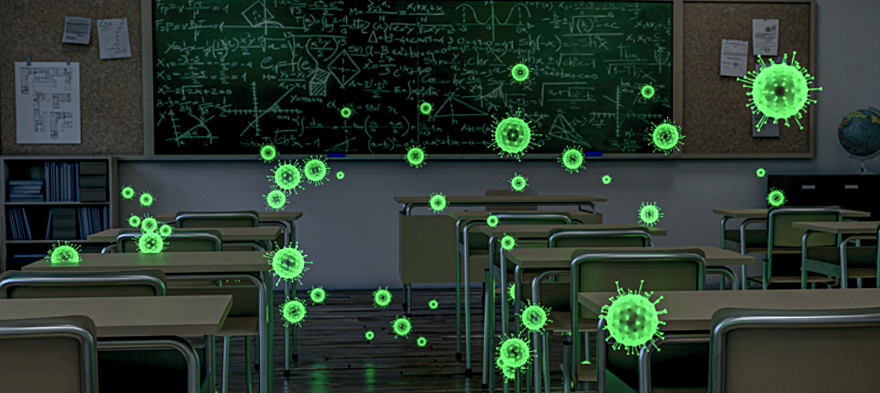
Nov 12, 2020 12:00:00 AM
by Matt Repka
Joe Biden’s election and this week's good news about several coronavirus vaccine candidates are massive developments in a months-long debate over how our schools should best reopen in the new school year. The president-elect has promised substantial changes to federal guidance around reopening, including the prospect of new funding to cover costs like personal protective equipment. But with Inauguration Day still two months away, and vaccines further still, those policy changes will not arrive before colder weather—and the already-breaking “third wave” of the COVID-19 pandemic.
The impending change in administrations sharply underscores the wrongheadedness with which we have approached the reopening discussion every step of the way. Every minute we have spent arguing about plexiglass barriers in classrooms, best practices for rotational structure in hybrid models, or the long-term effects of COVID-19 in children has been a minute not spent putting pressure on state and federal leadership to provide a coherent and effective strategy to mitigate the pandemic in this country.
We are contemplating reopening schools at a time when new coronavirus cases nationwide are exceeding 130,000 per day—a rate at least four times higher than the worst of the “first wave” of March and April that prompted the first school closures. The nation recorded its ten-millionth case this week.
[pullquote]Asking our educators to return to school buildings at this moment is not just wrong—it has wasted time and diverted attention from the real task at hand.[/pullquote] The real task is the hardest one, the one that’s been there all along: crush coronavirus transmission rates to a level that will permit a return to at least hybrid instruction.
The COVID-19 pandemic is another example of a familiar American story: our tendency to prize normalcy even when the status quo is unsafe, inequitable or forces undue risk on the most vulnerable. [pullquote position="right"]We are too willing to pass off responsibility onto other institutions, like schools, if it will allow us to pretend things are normal again[/pullquote] just because we are collectively tired of the pandemic.
Our teachers and principals have already assumed a great burden on our behalf this year. They quickly pivoted to remote learning, distributed devices, hotspots, meals, and other supplies, learned virtual instruction platforms, and tracked down many students who were missing from virtual school altogether. Now we’re asking them once again to do more for us, even when our current leadership acknowledges they have no plan to control the pandemic in the short run.
Eight months on, we’re still grappling as a nation with the false choice of protecting public health or getting “back to normal.” The urgency is real: for many of the students who stopped attending school after the onset of the pandemic, their disconnection from school will ultimately prove permanent.
And as time ticks away, learning loss will also fall the hardest on students with the least resources, or those with special needs. But [pullquote]we cannot let our desire to finally be finished with COVID-19 unfairly jeopardize the health and safety of students, teachers and their families[/pullquote].
Even with hopeful signs on the horizon, the current severity of the pandemic is too volatile and too dangerous for everyone involved. We must allow our public health institutions the time and space to confront this new wave of infections and avoid further loss of life.
Matt Repka is a senior analyst with Bellwether Education Partners on the Policy and Evaluation team working on a variety of program evaluation and capacity-building projects. Before joining Bellwether, Matt worked as a policy analyst for the District of Columbia State Board of Education, supporting the elected members’ decision-making on state-level education policies through independent research and data analysis. Matt previously worked for the University of Chicago Urban Labs on an evaluation of the One Summer Chicago summer youth employment program and served two years in AmeriCorps with City Year, working in the District of Columbia Public Schools as a corps member and a team leader. Matt holds a master’s degree in public policy from the University of Chicago and a bachelor’s degree from Tufts University.
Few issues in education spark more tension and debate than standardized testing. Are they a tool for equity or a burden on students? A necessary check on school systems or a flawed measure of...
Charter schools are public schools with a purpose. Operating independently from traditional school districts, they're tuition-free, open to all students, and publicly funded—but with more flexibility...
Despite the benefits of a diverse teaching force, prospective teachers of color fall out of our leaky preparation pipeline at every stage: preparation, hiring, induction, and retention. Here’s what...
Ed Post is the flagship website platform of brightbeam, a 501(c3) network of education activists and influencers demanding a better education and a brighter future for every child.
© 2020-2025 brightbeam. All rights reserved.
Leave a Comment